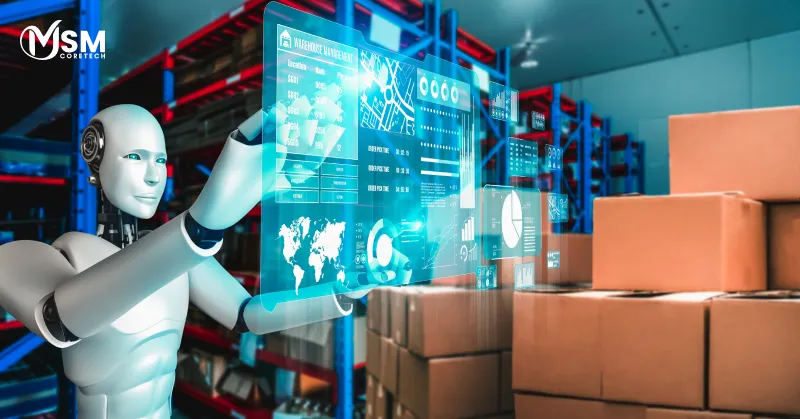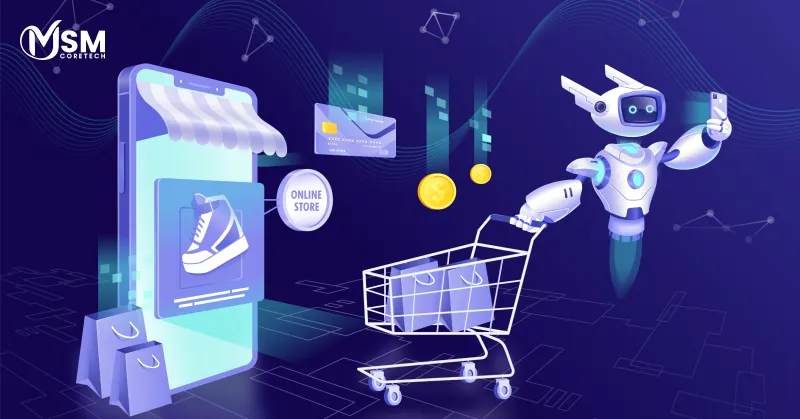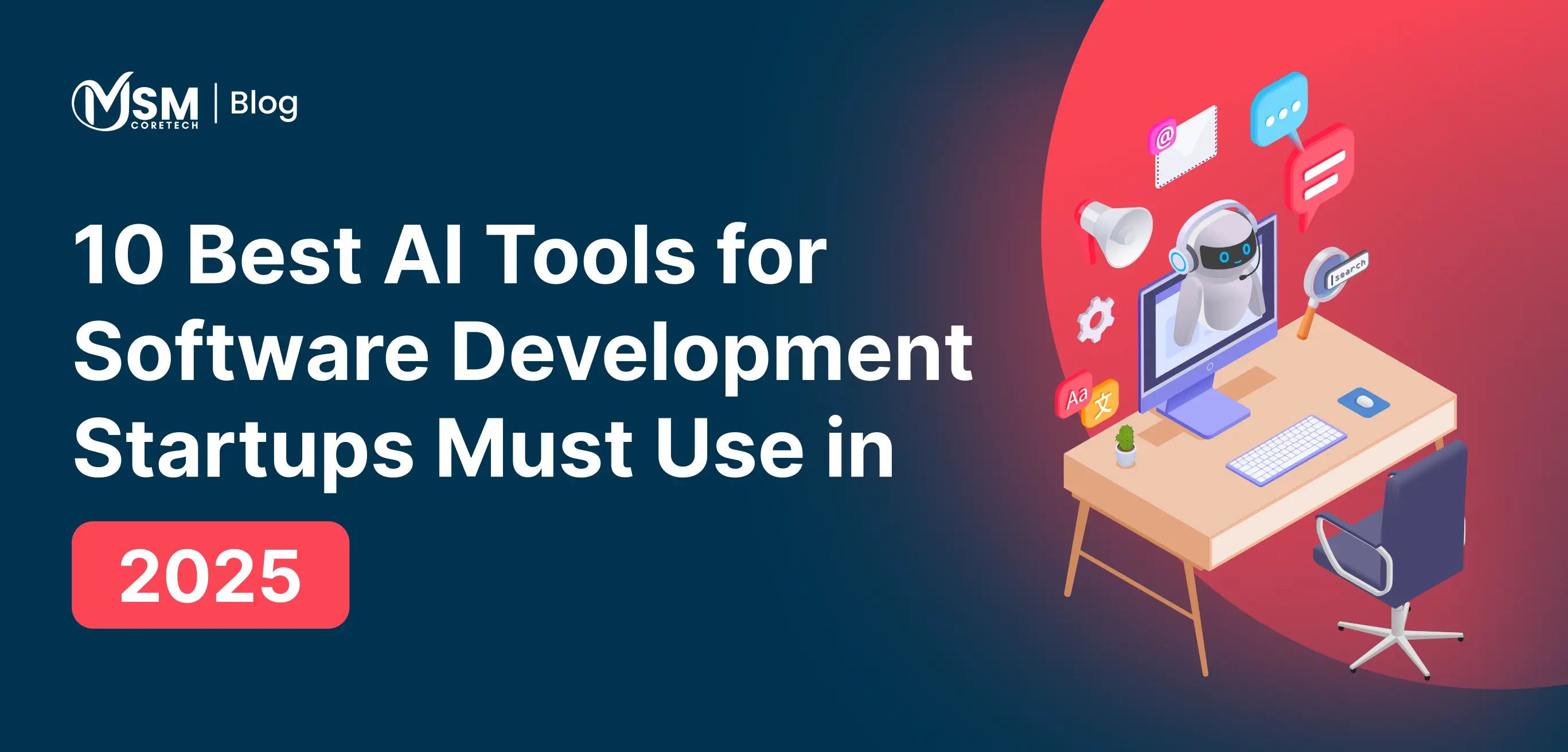AI in Warehouse Management: Costs, Benefits & Real ROI Insights

"Embracing AI in logistics and warehouse management is not just about increasing efficiency, it is a wider aspect which offers high-speed processing and long-term advantages for staying ahead of the competition."
Warehouses have been a critical space for big enterprises for a long time, and as the e-commerce business rapidly boosts the need for effective warehouse management techniques, it is very much necessary for best productivity.
With new innovations in technology, such as Artificial intelligence tools, warehouse management is at its fulfillment stage. AI-powered tools help enhance product management by analyzing market trends and demands, predicting risks before they arise, and creating effective workflows for employee motivation.
AI can analyse large datasets rapidly for performing certain time-specific tasks, such as predicting the shipment time and detecting any fraudulent functioning. A 2025 study done by McKinsey revealed that AI tools can rescue the delivering coast by 15%and increase the service by 65% significantly. AI-integrated tools can also suggest the best delivery routes for saving both time and money while enhancing the delivery experience of the consumer.
This detailed blog will explore the significant advantages of AI in warehouse management and will also highlight challenges associated with this integration, while notifying of the cost considerations. Now let’s get started.
What is AI warehouse management?
AI warehouse management is a process in which smart technologies are leveraged to enhance the warehouse's functioning for the best productivity. This powerful integration helps in speeding up the process for better accuracy and also assists in adapting to dynamic situations easily.
In 2025, warehouses are transforming quickly in this digital era; they are not just using machines to automate their tasks, but they are innovating new AI tools for software that can learn from past solutions and offer rigorous solutions for future challenges.
Moreover, automation by AI of simpler tasks, such as packaging and resolving worker queries effectively, helps in reducing stress at work. This transformation also helped in decreasing the major financial factors, such as high labour costs, while reducing major cost errors, which improves overall efficiency. In contrast, the future research and development are aiming to enhance AI integration in a sustainable way by exploring more approaches, like utilising AI techniques in waste reduction and with renewable energy.
Potential benefits -
- 72% of the big retail enterprises believe that AI has helped them in reducing their daily operational costs.
- Organisations are rapidly utilising AI-powered feedback and overview reports, which significantly assist in lowering the inventory costs by 20-25%.
- AI integration also offers fast order processing with suggesting routes for accurate shipping.
AI Adoption & Impact in Warehouse Management Across Industries
| Sector | AI adoption rate in logistics management | Average cost reduced | Stock optimisation gain | Operational efficiency |
| Retail and FMCG | 72% | 20-25% | 25% | 30% enhanced order delivery |
| E-commerce | 80% | 25-30% | 28% | 35% in delivery accuracy |
| Manufacturing | 65% | 15-20% | 18% | 25% in faster shipping |
| Logistics and 3PLs | 68% | 18-22% | 20% | 27% reduced transit delays |
| Healthcare and pharma | 54% | 12-15% | 15% | 22% fewer stockouts |
Core AI technologies & Use Cases in the warehouse
AI is not a single system technology; it can perform different tasks and leverage a variety of components at the same time. In contrast, AI-powered tools in warehouse management are developed in consideration of fast speed processing, while minimising the chances of potential risks.
Below are some of the most effective technologies of AI in warehouse management -
- Picking robots and autonomous mobile chatbots - Warehouse functioning includes shifting of various items, consisting of goods, equipment, and hardware items, which are heavy in nature, and lifting these heavy items can cause fatigue and injury. Leveraging autonomous mobile operated robots do not experience any kind of stress and fatigue and can optimise the inventory in frequent intervals easily.
- Predictive maintenance - During business operating hours, if a machinery breaks down, it damages the whole processing, and because of this, employees are required to put in extra efforts to perform their tasks. However, IoT-driven sensors help in predicting the temperature and pressure limits of the devices and send alerts if something goes wrong, which helps in operating without any obstacles.
- Smart warehousing - Smart warehousing is a process of integrating modern technologies like sensors to handle the inventory and workforce, and even enhances the working environment. With an overall visualisation of the warehouse activities at a single time, AI-powered tools can point out necessary factors that need attention, helping workers in the easy loading and dispatching of the items.
- Computerized vision - Robots can offer computerised vision cameras, which can help in monitoring the warehouse more efficiently, avoiding unnecessary bumps into workers, goods, and shelves. These robots are automatically operable and do not require any human intervention for resolving complex layouts. These robots can also help in segmenting items on the basis of their similarity, which eventually reduces the time required for sorting products at the time of delivery.
- AI-powered warehouse management systems - An AI-powered warehouse management software can offer services like automating simple and repetitive tasks and help in making informed decisions. Through this system, companies can focus on urgent orders quickly and help in assigning nearby delivery partners for better and faster delivery.
Advantages of AI in Warehouse Management (operational, safety & quality)
In warehouses, leveraging AI-integrated tools is now a very quick and easy process, and after integrating these technologies, the work becomes more productive,safe, and fast. AI plays a curtail role in the evolution of warehouse management in several ways listed below -
- Enhanced stock management and tracking - AI-powered tools help in monitoring every specific activity by using computerized vision cameras and sensors. These technologies know the product details of every lot, which reduces the chances of mistakes and enhances operational activity.
- Improvised predictive analysis and demand forecasting - By analysing the past trends and sales data, AI determines every factor for offering personalised services to the consumers for better consumer engagement. Moreover, this helps the company in maintaining the stock according to consumer preferences and demand.
- Faster packing and shipment - AI tools are able to operate robots also without any human intervention, these robots fasten the processes as they do not lack and have a feeling of fatigue and possess more accuracy than human beings, this reduces the chances of error and boosts the delivery process.
- Quick decision-making - As AI can examine the past data and provide an insightful overview, the workers can make data-driven decisions effectively. Additionally, it can also provide alerts when the stock runs out and suggest the shipment details by prioritizing the urgent order first.
- Better safety standards - Warehouses can be proven as a risky place because of heavy goods and hardware items, which can cause problems like injury at any time. AI-powered sensors and computer vision can assess the danger before it happens, and this helps in protecting the workforce from any uncertain casualty.
Challenges Associated with AI Integration in Warehouse Management
Below are the most prominent challenges companies face by leveraging AI techniques in tools in their warehouse systems -
- Cybersecurity threats - With a rapid increase in interconnected devices and the digital era, warehouses are facing the fear of cyber attacks. Cyber criminals often interact with these AI systems to damage their operational functioning. Model overtaking and data hijacking are two major cyber issues that can hamper the effective functioning of the warehouse.
- Zero in-house expertise - Hiring a skilled workforce can be hard for warehouses, especially when it comes to professionals who know how to implement AI-powered tools effectively.
- Data quality and availability - In order to provide precise insights, AI systems are determined to clean, organise, and gather top-quality data. Without this, predictions can be hard and biases can occur in algorithms. Several warehouse managers are constantly relying on outdated services and physical records, which can lead to irrelevant data analysis with a lot of inaccuracies.
- Vendor lock-ins - When organisations tend to choose AI service providers, they usually try to hire them for months or even years. If they want to be transformed later, they can end up facing significant cancellation fees.
Costs, Pricing models & how to think about ROI
The cost of leveraging AI-powered tools in supply chain and logistics management can vary from $50,000 to $ 5 million. The pricing usually depends on scaling, customization, and complexity level, of which the cost can vary accordingly. Small-scale warehouses can utilise generic AI-powered tools, while big organisations need to put heavy investments into full-scale warehouse automation and into developing custom models.
| Factors | Description | Estimated range | ROI considerations |
| Licensing and softwares | Consists of AI-powered warehouse management systems (WMS) by leveraging techniques like predictive analysis and machine learning models for solving queries of the user on the basis of their preferences and the kind of solution they seek. | Around $40,000- $15000 annually. | Return on investment is enhanced through routing sources, reduced errors and enhanced data-driven decision making. |
| Equipment and hardware | Computerized integrated sensors, robots and IOT integration for better tracking and packaging of the items. | $50,000 to $500,000 annually. | Payback in labour reduction and offers 24/7 operational capacity. |
| Customization and enhanced integration | Connecting AI modules with ERP and WMS systems with real-time APIs and highly designed interfaces. | $20,000 to $100,000 (single time) | ROI is enhanced with smooth workflows and requires no human intervention. |
| Cloud infrastructure and data training | Model training, data cleaning and cloud storage are required for predictive analysis | $10,000 to $60,000 every year | Long-term success and ROI can be achieved through scalable tools and analytics. |
| Change management and training | Training workforce staff for easy integration of AI-driven systems. | $5,000 to $20,000 for each batch training | Helps in enhancing the adoption rate and decreases the chances of human error. |
| Constant maintenance and support | Effective technical support with offering regular system updates. | 10-15% for initial investment and can increase with time. | Preventing costly overruns which sustains performance. |
Strategies for successful implementation of AI in warehouse management
A fully optimized AI implementation plan in warehouse management is developed with the effective support of upper-level management, with executive sponsors leading the change.
- Establishing clear goals - Developing pre-defined goals with effective measures and a timeline can help in fast order fulfillment and lowering the costs effectively.
- Identifying the right technologies - AI-integrated tools foster a wide range of capabilities, with a variety of use cases and outcomes with each separate technology. For instance, machine learning tools for predictive analysis and natural language processing for better understanding human queries are very useful. Businesses just needed to align their goals with the right technology to get the most out of it.
- Pilot testing - After implementing the right technology. Decreasing the operational damage and challenges may consist of testing in a controlled environment before leveraging it on a large scale. The pilot testing helps the leaders in identifying potential challenges and helps in developing necessary strategies for innovating effective solutions.
- Developing a blueprint - AI integration in warehouses is not a one-time process; rather, it is a continuous strategy that requires a lot of effort and long-term performance monitoring. Implementing an effective blueprint can help the company in visualising the necessary demands for meeting the future goals, such as additional technology investments and the need for new innovative methods for expanding the business operations.
- Tracking and monitoring the success - In order to measure the performance and success-including all the small achievements of AI integration, and establish metrics and different KPIs for achieving key business goals, and offer faster order processing with more accuracy.
Future trends in AI warehouse management
The future of AI integration in supply chain and logistics management is mainly developed in the context of enhancing warehouse automation, maximizing productivity levels, and decreasing the chances of risks with more accurate and pre-defined decision-making. Additionally, IoT-powered sensors and robots will continue to evolve with more enhanced capabilities, which can adapt to dynamic situations easily with real-time analysis. Moreover, the utilisation of AI to empower sustainability initiatives, such as leveraging strategies for reducing product wastage while lowering the delivery costs.
Conclusion
AI tools have enhanced warehouse management services significantly, as it is a smart and strategic way for companies to effectively increase their productivity and help in managing the risks more efficiently. By applying AI techniques in warehouse functioning, the supply chain is facing a rapid transformation, which brings more accuracy and efficiency.
AI tools consist of a range of technologies, such as IoT-powered sensors and computerised vision robots for better tracking of progress and performance. When it is utilised effectively, it empowers companies to analyse their consumer preferences for catering to them in a more personalised manner to create a loyal relationship with them.
Related Blogs

Generative AI in eCommerce: Growth, Benefits & Future Trends
Learn how generative AI is transforming ecommerce by improving customer experience, boosting sales, and shaping future trends.
Read More

Top AI Software Development Tools & Uses
Explore the best AI tools for software development in 2025. Learn how AI enhances coding, debugging, testing, automation, and productivity for faster and smarter software engineering.
Read More

Amazon Bedrock vs ChatGPT: Which AI Platform Is Best for Your Application?
Choosing between Amazon Bedrock and ChatGPT? This guide compares both AI platforms in depth — from features and pricing to integration and performance — helping you decide which one best fits your application’s goals.
Read More



